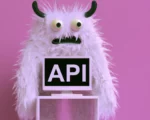In recent years, artificial intelligence (AI) has become increasingly prevalent in the business world, and one AI technology that has gained a lot of attention is ChatGPT. ChatGPT, or Chat Generative Pre-trained Transformer, is a natural language processing (NLP) system developed by OpenAI that allows businesses to create chatbots that can understand and respond to human language in a conversational manner.
There are many potential uses for ChatGPT in small businesses, and one of the most obvious is customer service. ChatGPT chatbots can be used to handle simple customer inquiries, such as answering frequently asked questions or providing information about products and services. This can free up time for human customer service representatives to handle more complex issues, or allow businesses to provide 24/7 customer service without the need for staff to be available at all times.
Another potential use for ChatGPT in small businesses is for marketing and sales. ChatGPT chatbots can be used to engage with potential customers, providing information about products and services and helping to guide them through the sales process. This can be particularly useful for businesses with a high volume of leads, as it allows them to personalize the sales process for each individual customer.
In addition to customer service and sales, ChatGPT chatbots can also be used for a wide range of other applications in small businesses. For example, they can be used to automate simple tasks, such as scheduling appointments or sending reminders. They can also be used to gather feedback from customers or employees, allowing businesses to continuously improve their products and services.
Overall, ChatGPT has the potential to significantly impact small businesses by providing a cost-effective way to automate simple tasks, improve customer service, and generate leads. While there are certainly limitations to what ChatGPT chatbots can do, they can be a valuable tool for small businesses looking to streamline their operations and improve their bottom line.
20 ChatGPT use cases that could be huge opportunities for small businesses
- “Ask a ChatGPT” – a chatbot service that allows small business owners to get quick answers to their most pressing questions, such as “How do I file my taxes?” or “What’s the best way to market my business on social media?”
- “ChatGPT Concierge” – a chatbot that helps small business owners plan their day, by providing recommendations for local events, restaurants, and activities based on their interests and schedule.
- “ChatGPT HR” – a chatbot that helps small business owners manage their human resources tasks, such as scheduling interviews, creating employee profiles, and tracking time off.
- “ChatGPT Bookkeeper” – a chatbot that assists small business owners with their accounting and financial management tasks, such as creating invoices, tracking expenses, and generating financial reports.
- “ChatGPT Personal Shopper” – a chatbot that helps small business owners find the perfect gifts for their clients, employees, and loved ones, based on their preferences and budget.
- “ChatGPT Travel Agent” – a chatbot that helps small business owners plan their business trips, by providing recommendations for flights, hotels, and activities based on their destination and needs.
- “ChatGPT Social Media Manager” – a chatbot that helps small business owners create and schedule social media posts, and provides tips and strategies for growing their online presence.
- “ChatGPT Event Planner” – a chatbot that assists small business owners with the planning and execution of events, such as conferences, workshops, and networking events.
- “ChatGPT Virtual Assistant” – a chatbot that helps small business owners with a wide range of tasks, such as scheduling appointments, managing emails, and creating to-do lists.
- “ChatGPT Customer Service” – a chatbot that assists small business owners with handling customer inquiries, complaints, and feedback, and provides personalized recommendations for products and services.
- “ChatGPT Marketing Assistant” – a chatbot that helps small business owners create and implement marketing campaigns, by providing ideas for content, targeting the right audience, and measuring the results.
- “ChatGPT Project Manager” – a chatbot that assists small business owners with managing projects and tasks, by setting deadlines, assigning responsibilities, and tracking progress.
- “ChatGPT Website Assistant” – a chatbot that helps small business owners create and maintain their website, by providing tips and resources for design, content, and search engine optimization (SEO).
- “ChatGPT Virtual Receptionist” – a chatbot that handles incoming calls and inquiries for small businesses, by providing information about products and services, directing calls to the appropriate staff member, and scheduling appointments.
- “ChatGPT Lead Generator” – a chatbot that helps small business owners identify and connect with potential customers, by gathering information about their interests and needs, and providing personalized recommendations.
- “ChatGPT Personal Trainer” – a chatbot that helps small business owners create and follow personalized fitness plans, by providing exercises, nutrition advice, and progress tracking.
- “ChatGPT Nutritionist” – a chatbot that assists small business owners with planning and tracking their meals, by providing personalized nutrition recommendations and recipes based on their goals and preferences.
- “ChatGPT Gardener” – a chatbot that helps small business owners plan and care for their gardens, by providing tips and resources for selecting plants, soil preparation, and pest control.
- “ChatGPT Lawyer” – a chatbot that assists small business owners with legal questions and tasks, such as creating contracts, filing trademarks, and understanding regulations.
- “ChatGPT Travel Companion” – a chatbot that helps small business owners plan and enjoy their travels, by providing recommendations for activities, restaurants, and accommodations based on their destination and interests.
All of the use cases listed above are possible with ChatGPT, as long as the chatbot is programmed and trained to handle the specific tasks and responses required for each use case. For example, a ChatGPT chatbot could be programmed to provide answers to frequently asked questions, or to recommend local events and activities based on a user’s interests and schedule. Similarly, a ChatGPT chatbot could be trained to handle customer inquiries and complaints, or to assist with financial management tasks such as invoicing and expense tracking.
Example code for the ChatGPT solutions listed above;
<script>
// Initialize ChatGPT with your GPT-3 API key
const chatgpt = new ChatGPT('your-api-key');
// Set up the chatbot's message container and input field
const messageContainer = document.getElementById('chatgpt-messages');
const inputField = document.getElementById('chatgpt-input');
// Define a function to handle the user's input
const sendMessage = () => {
// Get the user's message from the input field
const message = inputField.value;
// Clear the input field
inputField.value = '';
// Use ChatGPT to generate a response to the user's message
chatgpt.send(message).then(response => {
// Display the user's message and ChatGPT's response
messageContainer.innerHTML += `
<div class="user-message">${message}</div>
<div class="chatgpt-message">${response}</div>
`;
// Scroll the message container to the bottom
messageContainer.scrollTop = messageContainer.scrollHeight;
});
};
// Add an event listener to the input field to send the message when the user hits Enter
inputField.addEventListener('keydown', event => {
if (event.key === 'Enter') {
sendMessage();
}
});
</script>
















